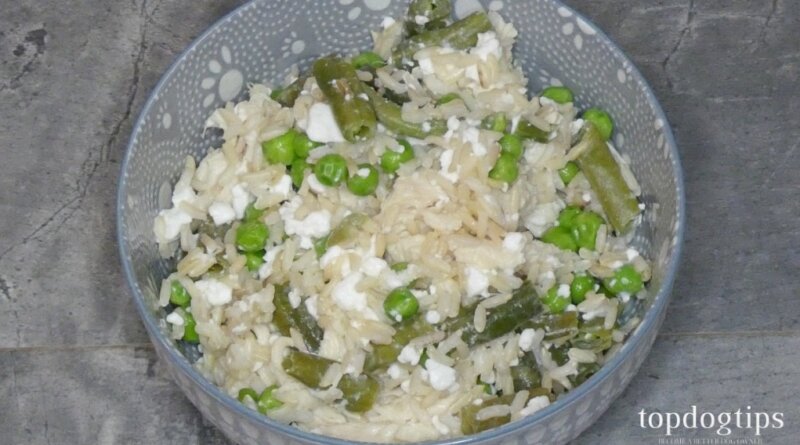Chicken & Veggies Food for Dogs with Diabetes Recipe – Top Dog Tips
Diabetes is a very common health issue seen in domestic canines. The most commonly diagnosed type resembles Type 1 Diabetes in humans. If your pet has been diagnosed with this condition, your veterinarian will certainly want to discuss a change in diet. This food for dogs with Diabetes recipe will not be nutritionally balanced for all pets, so be sure to discuss it with your veterinarian first.
It’s been estimated that about 1 in 100 dogs will develop diabetes mellitus by the time they’re 12 years old. Some breeds are more prone to developing this health issue, and un-spayed female dogs are twice as likely to be diagnosed than male dogs.
Caring for a diabetic dog is certainly challenging. It can also be quite expensive. Managing the condition through diet can help cut the cost of expensive medications. It’s also a healthier and more natural way to treat Diabetes.
This recipe can be used to feed diabetic dogs, but you need to consult your veterinarian or a trained canine nutritionist before switching. It will not provide 100% balanced nutrition for every dog. Your vet will be able to guide you on adding supplements or substituting ingredients to make the recipe properly balanced for your dog’s individual needs.
Chicken and Vegetable Food for Dogs with Diabetes Recipe

Recipe: Chicken and Vegetable Food for Dogs with Diabetes
Cottage cheese may seem like a bland food to you, but your dog will surely be enticed by the aroma. It is also high in calcium and protein, making it an excellent addition to dog food. This food for dogs with diabetes uses cottage cheese and chicken as the main protein sources.
As I mentioned, your veterinarian can help you cater this recipe to your dog’s unique nutritional needs. If your pet doesn’t like chicken or is allergic, you can substitute another protein source. If your pet has a sensitivity to dairy products, you can substitute other ingredients for the cottage cheese.
- 2 cups cooked chopped chicken breast
- 2 cups cooked long grain brown rice
- ½ cup peas
- ½ cup green beans
- ½ cup cottage cheese
First, brown the chicken in a skillet and drain the excess fat. Cook the rice according to the instructions on the packaging. Steam or boil the peas and green beans.
Allow all cooked ingredients to cool, and combine the chicken, vegetables, rice and cottage cheese in a large bowl. Mix well until equally combined.
Your veterinarian will also help you to decide if this recipe is appropriate for your diabetic dog. They may recommend adding some supplements or additional ingredients to make the meal nutritionally balanced for your Fido.
Nutrition
- Serving Size: 1/2 cup
- Calories: 193
- Sugar: .4 g
- Sodium: 69 mg
- Fat: 2.5 g
- Carbohydrates: 25.7 g
- Fiber: 1.6 g
- Protein: 16 g
- Cholesterol: 37 mg
Serving Size Recommendation: You can serve this food to your dog as soon as it has cooled. I recommend feeding about 1/2 cup of food for every 20-25 pounds of body weight. This recommendation is for 2 servings per day. So, a 25-pound dog would eat about 1/2 cup in the morning and 1/2 cup in the evening.
This is just a guideline. Some dogs, like working dogs and very active breeds, will need more calories than this. Lazier pets and senior dogs may not need as many.
It’s best to consult your veterinarian about the appropriate serving size for you dog. They will also help you evaluate meal to make sure it will meet your pet’s unique nutritional needs. If necessary, they will assist you in choosing the best supplements and/or multivitamins to add.
How to store: You can store the leftover food for dogs with diabetes recipe in an airtight container in the refrigerator for 3-5 days or freeze them, and they’ll keep for up to 3 months. Keep in mind that this recipe includes no preservatives, so that it won’t last nearly as long as commercial dog food.
Related





